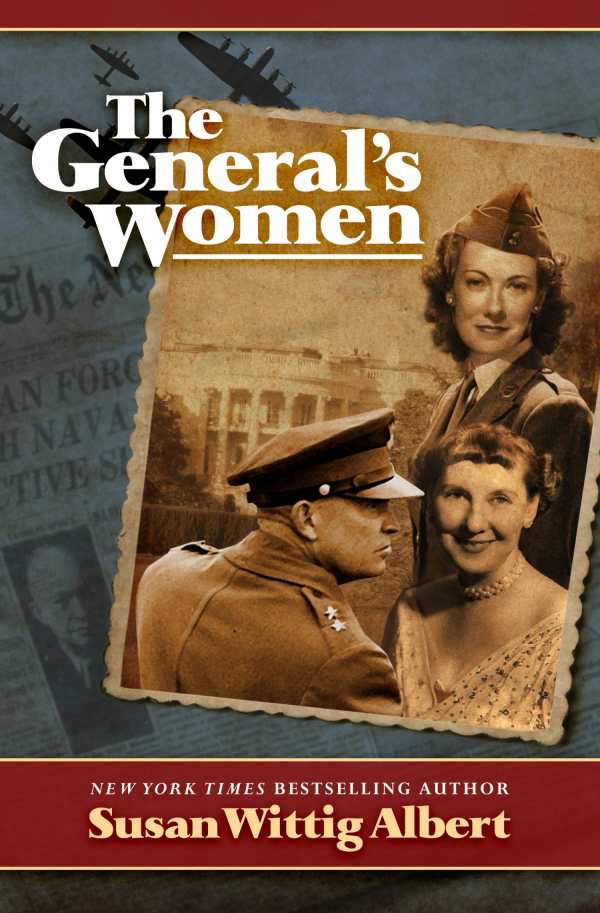The General's Women
A Novel
- 2017 INDIES Winner
- Gold, War & Military (Adult Fiction)
The General’s Women imagines the most of a wartime relationship around which speculation swirled; the effects are irresistible.
Susan Wittig Albert’s The General’s Women is an engrossing and humanizing account of a love that blossomed during wartime, and that scandalized a nation ever after.
When Kay Summersby first meets General Dwight Eisenhower, she is unimpressed. On first pass, he is gruff, and he’s less decorated than the Yanks that other drivers of her status have the honor of ferrying across London. But as Ike assumes greater and greater command of the Allied troops, he warms to his young Irish driver. The two are soon dependent on each other for comfort and understanding.
The magnetism of wartime proximity isn’t something that Ike’s wife, Mamie, is inclined to feel much sympathy for, though. Back home in Washington, she is inflamed with jealousy each time a journalist’s account of Ike includes his pretty young driver. There’s not much she can do from an ocean away, though she does her best: admonishing Ike in letters; appealing to his higher-ups, as well.
The narrative moves from a London still reeling from the blitz to North African battlefields ably, capturing historical events—like the torpedoing of the ship that carried Kay to Algiers—with cinematic skill, with descriptions like “the utter dark of the wartime streets … lit only by the glowing tips of cigarettes.” Dusty Cairo avenues and coastal English cottages make for evocative fare, yet it’s Wittig Albert’s characterizations that sing the most here.
From the gender barrier-breaking WACs who contributed fearlessly to wartime efforts, only to have their characters impugned at home, to the colorful generals who propelled the war forward, historical personalities—and period prejudices—are well captured. Ike’s long affection for, and frustrations with, Mamie are sympathetically explored, as is his growing attachment to his young driver. Kay, though, is the star of the show.
The young woman whom Ike calls “Irish,” but who gossips have less endearing terms for, finds her integrity resuscitated in The General’s Women. The nuances of her controversial relationships before Ike—a divorce for which she was wrongly faulted; an engagement to a young American soldier who’d also previously been married—are teased out.
Kay is shown to struggle against her growing feelings for Ike; her bravery and tenacity throughout the war become her most notable features. The story generates sympathy for a relationship that was perhaps unfairly characterized by gossip columnists and lookers-on alike.
Kay—whose own memoir, end material shows, may have been redacted to conceal the true nature of her relationship with the general-cum-president—is given a chance to set the record straight here, and the result is a historical novel that is sympathetic, satisfying, and heartbreaking. There are no villains in the text, beyond those whom the Allies fight.
The General’s Women imagines the most of a wartime relationship around which speculation swirled; the effects are irresistible.
Reviewed by
Michelle Anne Schingler
Disclosure: This article is not an endorsement, but a review. The publisher of this book provided free copies of the book and paid a small fee to have their book reviewed by a professional reviewer. Foreword Reviews and Clarion Reviews make no guarantee that the publisher will receive a positive review. Foreword Magazine, Inc. is disclosing this in accordance with the Federal Trade Commission’s 16 CFR, Part 255.

